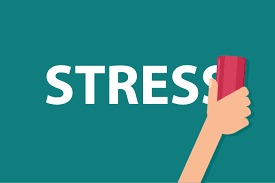Understanding Stress: Practical Methods to Control and Decrease Everyday Stress
Stress has become an everyday companion in our fast-paced world of today. Stress may have an adverse effect on our physical, mental, and emotional health when it comes to dealing with unforeseen obstacles, managing personal obligations, and achieving job commitments. Nonetheless, stress levels may be managed and decreased by using practical strategies, which promotes a better and more balanced way of living.
Comprehending Stress:
Understanding what stress is and how it affects us is essential before diving into stress management approaches. The body naturally responds to demands or pressures by creating stress, which sets off a series of physiological processes. While occasional stress may be advantageous and improve our performance in certain circumstances, prolonged stress can be harmful to our health.
Methods for Handling and Lowering Stress:
Meditation and mindfulness: These two techniques may be very effective stress-reduction strategies. These methods promote relaxation, lessen worry, and promote living in the present. Even a little daily meditation practice may have a big impact on reducing stress.
Frequent Exercise: Endorphins are the body’s natural stress relievers, and they may be released by frequent physical exercise such as yoga, jogging, or dancing. Exercise enhances mood, lowers stress levels, and fosters a feeling of well-being in addition to improving physical health.
Healthy Lifestyle Options: Eating a well-balanced diet, getting enough sleep, and avoiding stimulants like alcohol and coffee may all help lower stress levels. The body can handle challenges more effectively when it has the right nutrients and enough sleep.
Time management & Prioritization: Having a clear sense of priorities and managing your time well can help you avoid being overburdened with work. Organizing oneself better and lowering stress from deadlines and obligations may be achieved by breaking work down into smaller, more manageable chunks and making a calendar.
Relaxation methods: Using relaxation methods may help to soothe the body and mind, lowering tension and fostering a feeling of serenity. Some examples of these techniques include progressive muscle relaxation, deep breathing exercises, and aromatherapy.
Setting Boundaries: It’s critical to have the ability to say “no” when it’s appropriate and to establish limits in both personal and professional interactions. Burnout and elevated stress levels are often the results of overcommitting oneself.
Seeking Support: Gaining vital perspective and support might come from speaking with friends, relatives, or a mental health professional. Sharing worries and emotions with someone you can trust helps reduce stress by offering emotional support.
Take Up a Hobby: Hobbies that promote happiness and relaxation, including reading, painting, gardening, or music-making, might help reduce stress. Hobbies allow people to divert their attention from pressures and foster a feeling of satisfaction.
Stress management is a continuous process that calls for dedication and repetition. You may live a better, more balanced existence and considerably lower your stress levels by implementing these tactics into your everyday routine. Proactively managing your stress gives you the ability to better handle life’s obstacles and enhance your general wellbeing.







